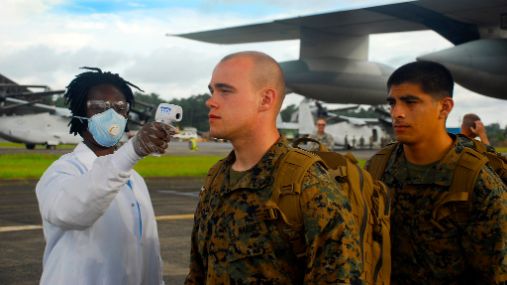Thinking the unthinkable? Foreign militaries and health assistance
Colin McInnes, Aberystwyth University

The deployment of international troops during the 2014 Ebola outbreak highlighted the role of foreign militaries in providing health assistance. Deployments in health crises have apparent health benefits: soldiers can be deployed rapidly into difficult situations and militaries have extensive medical, logistical and engineering capabilities to draw from. Deployments may also present benefits in terms of bolstering host state security and enhancing donors’ soft power. However, they also create risks in terms of the politicisation of health aid – traditionally a superordinate space - as well as uncertainties over their effectiveness and ethics. What criteria therefore should we apply when considering whether or not foreign militaries should be deployed to provide health assistance?
Civil war and the politicization of healthcare: Insights from Nepal
Simon Rushton, University of Sheffield

There have long been concerns about the politicization of healthcare during civil war. In many conflicts heath facilities have been deliberately attacked, health professionals and patients have been prevented from reaching health facilities, or supply lines of medicines and other vital resources have been disrupted. Elsewhere however, warring parties have seen health service delivery as a potential route to wining over the hearts and minds of the population. The latter approach may well be better for health, but still brings the danger of politicization, including potential dangers for recipient populations and health professionals. In this talk, I will examine health service delivery by both the government and the Maoist insurgents during Nepal’s decade-long civil war. I argue that what occurred in this case was a ‘strategic non-politicization of health’. I will attempt to unpack the factors that led to this relatively benign outcome – factors which may offer lessons for the protection of the health sector in other civil conflicts.
On the seminar series "Global Health Unpacked"
“Global Health Unpacked” is a new seminar series that aims to foster critical discussions on the politics of global health, with insights from social sciences and humanities. Invited guest speakers from different countries will bring an original perspective to the debates we have in Norway. “Global Health Unpacked” is jointly organized by the research group Power and Politics of Global Health, Centre for Development and the Environment and the UiO Centre for Global Health.
